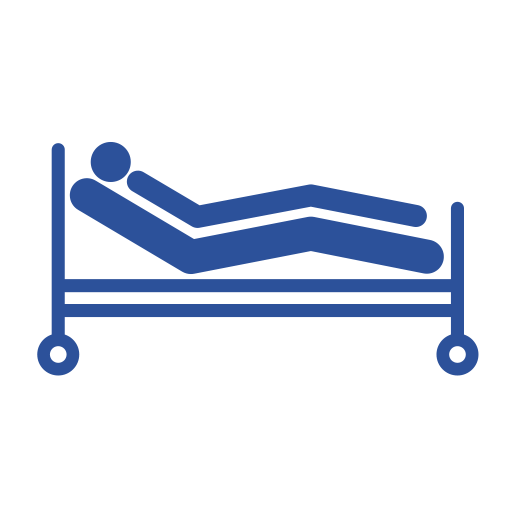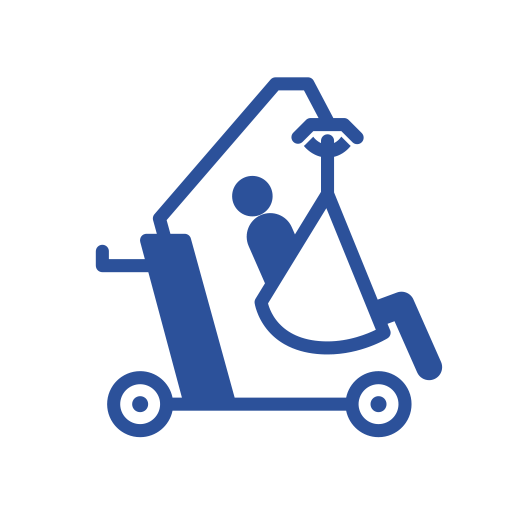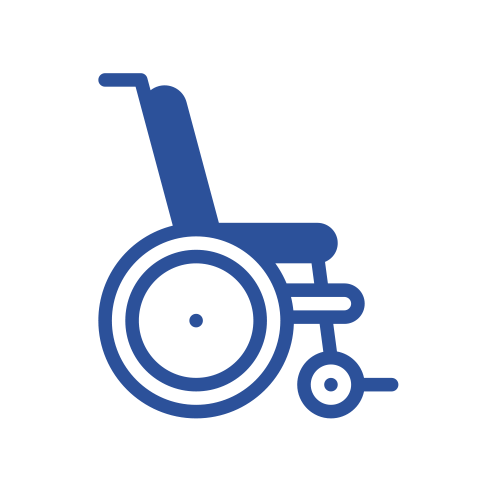Early Symptoms of Alzheimer's
A form of dementia, Alzheimer’s affects a person’s cognitive ability. Specifically, it’s a disease that has an impact on memory, reasoning, language and thinking.
What makes Alzheimer’s different to dementia?
Alzheimer’s is a specific illness.
Dementia is an umbrella term, covering a variety of illnesses and conditions that lead to similar symptoms.
Alzheimer’s is the most common cause of dementia, but not the only possibility. Roughly 60% of dementia diagnoses are as a result of Alzheimer’s, according to Dementia UK.
If you notice early signs of dementia then you may be dealing with the early symptoms of Alzheimer’s, but will need a professional diagnosis to rule out other possible causes.
So, what are the early symptoms of Alzheimer’s?
The early signs of dementia are, of course, very worrying for everyone involved. Nobody wants to feel like they’re ‘losing their mind’.
Becoming forgetful and struggling with things that once felt easy can be very stressful. Watching a loved one show these signs is an equally upsetting experience.
It’s very important to reach out for help as soon as possible. All types of dementia include a gradual decline, becoming progressively worse.
It’s essential to know what you’re looking for, so that you can take action before the symptoms of Alzheimer’s progress.
Of course, if you’re ever worried that something doesn’t feel right, don’t hesitate to visit your GP.
Early symptoms of Alzheimer’s include:
- short term memory loss and forgetfulness
- misplacing or losing belongings
- forgetting conversations or events that have recently happened
- struggling to remember which word to use
- struggling to follow a conversation
It’s often a relative, like a son or daughter, that will first notice the signs of dementia. They’ll pick up on conversations with an unusually high amount of repetition, or will notice that their parent doesn’t turn up for an event that they’ve been made aware of.
Mood changes can also be an early symptom of Alzheimer’s. Someone with a previously sunny disposition may become suddenly more snappy and agitated.
These early symptoms might have a limited impact on someone’s life. As Alzheimer’s progresses, sufferers might forget where they live after they’ve been for a walk to the shop, or may start cooking their dinner and then forget that the food is on the stove. At this point, living with Alzheimer’s becomes dangerous, with a need for additional support.
Is Alzheimer’s just an ‘old person’s disease’?
Most people with Alzheimer’s have developed the symptoms whilst over the age of 65. However, some people do show signs of Alzheimer’s sooner. These people are said to have early-onset Alzheimer’s.
According to the Alzheimer’s Society, there are more than 40,000 people with Alzheimer’s under the age of 65.
What can help in the early stages of Alzheimer’s?
In the early stages of Alzheimer’s, many people want to continue to live independently. Close monitoring is essential, so that someone can step in when the risks begin to increase.
Post-it notes are ideal for helping with forgetfulness, which is one of the early signs. Write things down and stick them in clearly visible locations.
Memory games and triggers can keep the mind working for as long as possible. Brain games can strengthen the connections used for short term memory, whilst objects and pieces of music from someone’s past can allow for beneficial reminiscence.
Take time to look through old photographs at regular intervals. Play music that the person with Alzheimer’s should recognise. Discuss past holidays, day trips and events.
Over time, physical signs will begin to show. These usually become more apparent during the middle stage of the disease. The body becomes more rigid. Tremors are common. Coordination and movement are affected. At this stage, canes and walkers may be essential for reducing the risk of trips and falls. If a fall does happen, it can have a particularly damaging impact on an already weakened body.
It may be necessary to convert a downstairs room for sleeping, or install a stair lift. But, bear in mind that at this stage, it is likely that the Alzheimer’s sufferer will need to be living in supported accommodation very soon if they aren’t already.
Incontinence is also likely in people with Alzheimer’s. During the early stages, the sufferer may have trouble working out how to remove clothing. Dignity can be preserved, and embarrassment saved, with absorbent underwear or pads. If you are caring for a person with Alzheimer’s, you may also want to schedule visits to the toilet every one or two hours, along with helping with other self care including washing and tooth brushing.
Helping to prepare meals that can easily and quickly be reheated in the microwave can be a very effective way to help someone with dementia to retain their independence. This reduces the risk of malnutrition, and the risk of food being left on the hob or in the oven.
Above all, if you are noticing the early symptoms of Alzheimer’s in yourself or someone that you know, remember to reach out for support early on. Charities and healthcare professionals will have answers to your questions, and listening ears at times when they’re needed.

 Bathroom Aids
Bathroom Aids Beds & Bed Aids
Beds & Bed Aids Car & Travel Aids
Car & Travel Aids Chairs & Seating Aids
Chairs & Seating Aids Cleaning & Hygiene
Cleaning & Hygiene Comfort & Dressing
Comfort & Dressing Continence Care
Continence Care Cushions & Supports
Cushions & Supports Daily Living Aids
Daily Living Aids Disabled Ramps
Disabled Ramps Footwear & Footcare
Footwear & Footcare Health & Medical Aids
Health & Medical Aids Medical Professionals
Medical Professionals Mobility Scooters
Mobility Scooters Paediatric Equipment
Paediatric Equipment Parts & Spares
Parts & Spares Patient Handling
Patient Handling Stair Lifts
Stair Lifts Therapy & Orthopaedics
Therapy & Orthopaedics Toileting Aids
Toileting Aids Walking Aids
Walking Aids Wheelchairs
Wheelchairs



